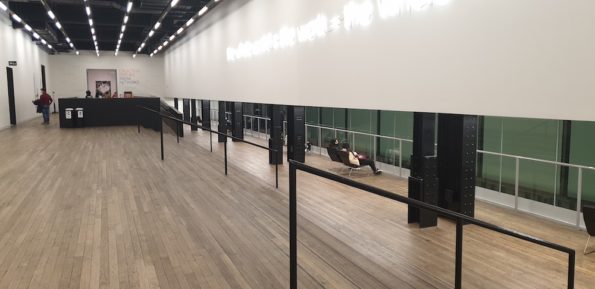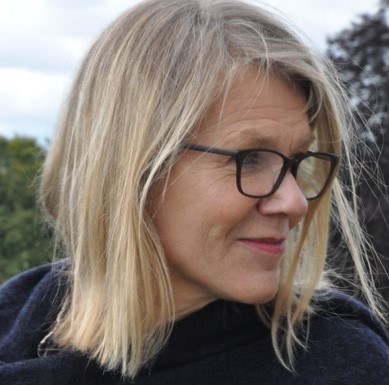Search
To search for an exact match, type the word or phrase you want in quotation marks.
A*DESK has been offering since 2002 contents about criticism and contemporary art. A*DESK has become consolidated thanks to all those who have believed in the project, all those who have followed us, debating, participating and collaborating. Many people have collaborated with A*DESK, and continue to do so. Their efforts, knowledge and belief in the project are what make it grow internationally. At A*DESK we have also generated work for over one hundred professionals in culture, from small collaborations with reviews and classes, to more prolonged and intense collaborations.
At A*DESK we believe in the need for free and universal access to culture and knowledge. We want to carry on being independent, remaining open to more ideas and opinions. If you believe in A*DESK, we need your backing to be able to continue. You can now participate in the project by supporting it. You can choose how much you want to contribute to the project.
You can decide how much you want to bring to the project.

It is unarguable that the events of the last 20 months have had, and will have, a profound and lasting impact on cultural institutions in the UK – the context I am most aware of – and across the globe. The museum closures imposed by COVID-19 have precipitated a drastic fall in audience numbers and associated income. The restrictions in international travel prohibiting visitors to popular tourist venues have affected large national museums including Tate Modern especially hard. Even when the building has been open, the crowds of vacationers, families and school children that previously packed the cavernous Turbine Hall and gallery spaces have been noticeably absent. Furthermore, any predictions as can be made are indicating that tourist visitors to the UK will not return to pre-pandemic levels for several years[1]https://www.visitbritain.org/2022-tourism-forecast. So, what is a national art museum such as Tate Modern for, if it is not dispensing education and entertainment for ever increasing numbers of global visitors? And can it survive financially if the model of the blockbuster visitor-attracting exhibition is no longer viable?
Equally impactful on national art museums has been the response to the murder of George Floyd in May 2020. The Black Lives Matter movement has long drawn attention to the role of heritage in perpetuating racism, however, growing public outrage last year increased pressure on galleries, libraries, archives and museums to address racism within and beyond their organisations and commit to decolonising their practices and collections. Whilst many cultural institutions responded in 2020 by making public statements committing to racial equality and to tackling systemic intersectional inequalities, the reality is that achieving these ambitions will require significant institutional transformation. To move beyond performative virtue-signalling and towards genuine decolonisation and equity of access, museums must deconstruct and change what and how they collect, exhibit, conserve, archive, interpret and teach about the objects in their care. Is this transformation feasible? Or would it, as Tristram Hunt, the Director of the V&A museum has suggested, lead ultimately and for him worryingly to the dismantling of the national museum project entirely?[2]Tristram Hunt is quoted as saying ’For a museum like the V&A, to decolonise is to decontextualise: the history of empire is embedded in its meaning and collections…’ … Continue reading
From certain perspectives, the current situation for large national art museums can therefore be viewed as potentially catastrophic. Yet arguably the present crisis also holds the possibility for positive reinvention. Imagine for a moment a scenario where, for example, national museums took this opportunity to fundamentally rethink how they value and make visible the knowledge created by the professionals in their employment and the expertise of those who engage with them? Consider if these museums re-evaluated their function, so that they remained the curators, in the sense of being the carers, of the collections, but were not the exclusive authorities on them. What if these museums committed significant resources toward working in close collaboration with externals to co-create new configurations of the museum and interpretations of objects and works of art? These, you will no doubt be thinking, are not new concepts. The argument that museums should function more as forums for debate and the free exchange of ideas, rather than elite temples of rarefied knowledge has been made at various times since the late 1960s. But perhaps what is unique at this moment is the combination of acute financial instability combined with the sustained critique of these institutions’ failures of representation and systemic racism, two scenarios which might afford an existential and epistemological rethink.
Research as a mode of generating knowledge has an important part to play in supporting this transformation. To achieve this, however, our understanding of how research functions within the museum itself needs to be reframed. Recognition needs to be given to the interconnectivity between practice, theory and research; to the forms of praxis that exist not only within curatorial departments, but also within pedagogical programmes and activities, within conservation divisions and across visitor experience teams. Furthermore, research undertaken in the museum must no longer be considered as the preserve of an elite minority of scholars. Instead, we need to foreground how research involving practitioners and collaborators from beyond the institution can operate more democratically and disruptively. At its most fundamental, research comprises a process of structured enquiry, underpinned by a question (or questions), that generates new insights that are shared publicly. In other words, research is an activity that necessitates questioning, critical engagement, reflection and knowledge creation. Understood in these terms, research can afford an epistemological space within the museum to interrogate existing systems and structures, surface previously hidden yet vital narratives of our histories and centre more diverse interpretations. Seen this way research has the potential to be an agent of productive interruption and change.
Models exist already of how research undertaken by museum professionals, working in collaboration with university-based colleagues and individuals and groups can highlight exclusionary museum practices and make positive interventions in cultural institutions. Texts brought together by Bronwyn Bevan and Bahia Ramos in a recent publication addressing equity in the museum[3]Bevan, B. & Ramos, B. (eds.) (2022). Theorizing Equity in the Museum. Integrating Perspectives from Research and Practice. Abingdon: Routledge. highlight how ‘research-practice partnerships’ (RPP) can generate knowledge more equitably and ethically. In one essay, for example, the authors detail how educators co-researched alongside young people from historically marginalized communities and academics, drawing on theories of spatial justice to co-produce new ‘spatial imaginaries’[4]Calabrese Barton, A., Balzer, M., Kim, W.J., McPherson, N., Brien, S., Greenberg, D., Archer, L and Members of the Youth Action Council. (2022). ‘Working toward justice: Reclaiming our Science … Continue reading. Here the process of co-research afforded opportunities to question, rethink and ‘reclaim’ a science centre in the USA for the racially diverse group.
Further evidence of the transformative potential of radical collaborative research is present throughout the texts in Bevan and Ramos’ publication. Yet an equally dominant theme running through the essays is the frustration and exhaustion felt especially by colleagues of colour at the pace of change and the entrenched racism and embedded hierarchies of knowledge and power within the museum that actively resist any dismantling of current structures and practices. These museum-based practitioner-researchers want to see change, as do many others I know who engage in participatory collaborative research with a view to examining and challenging their own institutions. Often based in education or outreach teams, these individuals are aware of the need for multiple voices and a diversity of knowledge and lived experiences to be shaping the museum. They seek to establish equitable research partnerships that respect the contributions made by all participants and to learn from the insights gained through a collaborative process of enquiry. Too often, however, such individuals and the projects they instigate operate at the margins of the museum, with research interventions being time and resource limited. A troubling sense of temporality can accompany projects that seek to redress colonial interpretations, for instance, or connect with specific community organisations in relation to a particular ‘relevant’ exhibition.
What is needed is a more sustained, longer-term commitment on the part of the senior leadership of museums to co-investigating and transforming how and whose knowledge is validated by the institution. This needs to be coupled with an acceptance of and willingness to learn from potentially critical insights that may surface through such interrogations. The current climate, where the continued existence of museums as we have known them is unsure, is often difficult and draining for those working within them. But for some, the realisation that we can no longer operate in the same way, upholding exclusionary practices that are no longer ethically or financially viable is liberating. Embedding research-led participation and genuine collaboration at the heart of museum practice is one of several approaches that a national museum could adopt to achieve genuine equity of access and representation. If we start with the premise that, if not everything, then at least a great many processes, structures and financial models must change for the national museum to survive, asking questions and exploring possibilities with people who can bring fresh critical perspectives is surely a good place to start?
(Front image: ‘Tate Modern Level 4 Concourse December 2021’. Copyright Emily Pringle.
| ↑1 | https://www.visitbritain.org/2022-tourism-forecast |
|---|---|
| ↑2 | Tristram Hunt is quoted as saying ’For a museum like the V&A, to decolonise is to decontextualise: the history of empire is embedded in its meaning and collections…’ (https://www.theguardian.com/culture/2019/jun/29/should-museums-return-their-colonial-artefacts). |
| ↑3 | Bevan, B. & Ramos, B. (eds.) (2022). Theorizing Equity in the Museum. Integrating Perspectives from Research and Practice. Abingdon: Routledge. |
| ↑4 | Calabrese Barton, A., Balzer, M., Kim, W.J., McPherson, N., Brien, S., Greenberg, D., Archer, L and Members of the Youth Action Council. (2022). ‘Working toward justice: Reclaiming our Science Centre’ in Bevan, B. & Ramos, B. (eds.) (2022). Theorizing Equity in the Museum. Integrating Perspectives from Research and Practice. Abingdon: Routledge |

Emily Pringle trained as a painter but has worked for the last 25 years with and in art museums. She has worked at Tate in London since 2011 and as Head of Research there since 2019. Her main interests are in museum practice, research and creative learning. She researches and writes on these topics and in 2019 published ‘Rethinking Research in the Art Museum’, which makes the case for collaborative and participatory museum-based research.
"A desk is a dangerous place from which to watch the world" (John Le Carré)